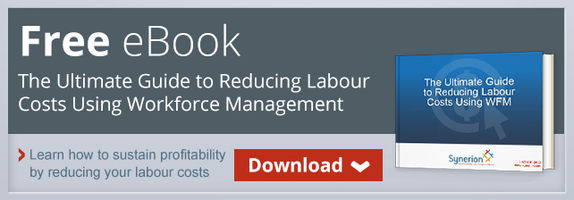 Overtime is sometimes a necessary evil but for business owners, overtime can deplete already tight budgets and cause additional stress on employees. Overtime may be appreciated in the short term but when overtime becomes a regular part of the job, it affects work-life balance and reduces overall productivity.
Overtime is sometimes a necessary evil but for business owners, overtime can deplete already tight budgets and cause additional stress on employees. Overtime may be appreciated in the short term but when overtime becomes a regular part of the job, it affects work-life balance and reduces overall productivity.
Employers end up spending more money for a lower quality of work due to exhaustion and mistakes. Employers end up managing funds less effectively because more variance needs to be built into the budget to account for overtime and the additional man hours. Rather than getting up needed upgrades or additional employees, businesses find themselves in a never ending cycle of spending money on overtime which means they can’t spend money on things that would prevent more overtime.
Decreased Flex Time
Flexing employees during periods of low workload is a great idea for your business but not such a boon for your employees. Reducing employee hours can cause financial hardship for your employees or eat into much-needed vacation time. When employees are required by their employer to work less hours because of low productivity, not only does that employer lose employees who find better positions but also reduces morale of remaining employees.
Attract a Better Caliber of Employee
You want the best employees at your company but if you can’t provide set hours, the best employees are going to pass for a workplace with more consistency. Employees value work-life balance with regular schedules and few employees enjoy ongoing overtime or continually changing job duties because it cuts into time spent with family.
Employees talk and when job prospects know that the business regularly flex hours, they may pass up the opportunity for a business with more continuity in their workload. Ultimately, to attract the best candidates, you need to have the best workplace and that requires a consistent schedule.
Reduced Stress for Everyone
No matter the current size of your organization, you can probably think back to a time when consistency cost your business. Whether it was working late into the morning hours for weeks at a time to complete an order or having a great employee leave due to reduced hours during a slow time, when companies can’t maintain a consistent workload, everyone suffers.
Upper management presses managers to increase output which causes managers to start scheduling employees for additional hours or less hours and give them additional duties. Employees are suddenly under an immense amount of stress to produce more work, grappling with decreased time or money, sometimes without any concern to their family obligations. With everyone working more hours, there’s a higher opportunity for errors and mistakes, increasing workplace stress. Overall, consistency allows employees to better manage their job duties and therefore their stress.
Achieving Consistency
If you’ve found yourself in a cycle of reallocating funds for technology or additional staffing to covering overtime, breaking that cycle can be a challenge. Starting with low-cost but highly effective workforce management software is one way to increase consistency in your workplace. Workforce management software allows businesses to compile data for assessment and allow businesses to pinpoint what causes inconsistency in their workplace. Once that’s been identified, businesses can take steps to normalize workflow.
